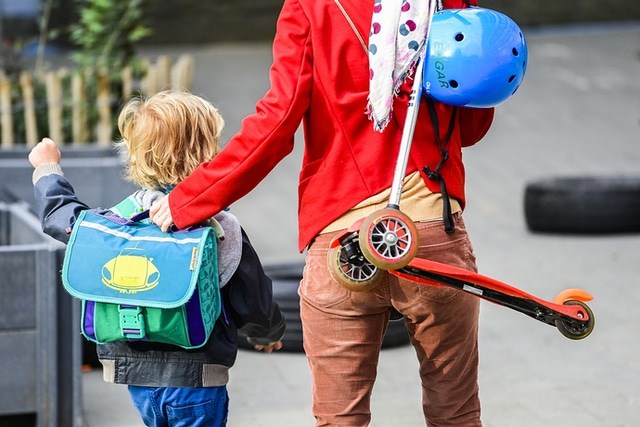After the French community in Belgium announced earlier this year that it would shorten the summer holidays from 2022, Flemish Education Minister Ben Weyts is also looking into the possibility.
The coronavirus pandemic put the debate about a shortened summer holiday back on top of the agenda, and Weyts has now asked the Flemish Education Council (Vlor) and the social partners for advice, which is expected in June.
In principle, Dutch-speaking and French-speaking schools will start at different times from September 2022, as the French Community (which is made up of Wallonia and Francophone Brussels) will already start the next school year on Monday 29 August - a week earlier than the usual first Monday of September.
In concrete terms, the summer holidays would be shortened from nine to six to seven weeks in a redesigned calendar. In exchange, the autumn and spring holidays would be extended to two weeks.
This means that while the total teaching time would not change, the summer break would become a little shorter, which is exactly what education experts are so keen on.
"It is scientifically proven that long summer holidays are detrimental to children on an educational level," sociologist Dirk Jacobs (ULB Brussels) told De Morgen.
Related News
- Flanders ends face masks in secondary schools, Brussels does not
- Francophone schools shorten summer holidays, Dutch-speaking ones don't
"The phenomenon of summer 'learning loss' occurs in all children, but all the more so in children from lower socio-economic classes who receive little stimulation at home," he added. "As a result, their learning loss is greater in September."
While most middle-class children are stimulated at home and do things like go to summer camps, pick up a language abroad, visit a museum with their parents or read a book, some children do not speak Dutch for two months, says sociologist Ignace Glorieux (VUB), who has been researching the subject for 25 years.
"Because the learning process comes to a complete standstill, teachers need up to a month after each summer holiday to get back to the language level before the holiday," he told the newspaper, stressing that this is "obviously detrimental to the child's development."
"The summer holiday, as we know it today, is actually an anachronism that dates back to the agricultural society and is completely outdated today," Glorieux said.
Shorter summer holidays and a more logical division of the school year could have "a major impact" and help to reduce the inequality between lower and higher social classes, he believes.
An adjustment of the summer holidays would not just have a major social impact on schools, however, it would impact all sectors in society: from employers to childcare, mobility and tourism; they will all have to adapt to a reshuffled rhythm.
Glorieux recognises that the impact of such a reshuffled system will be major, "it is an effort that simply must be made."
"Of course we have to take into account the practical consequences for teachers and principals as well as for society at large. But if one thing should come first in education, it is surely the interest of the child and the pedagogical project?"

